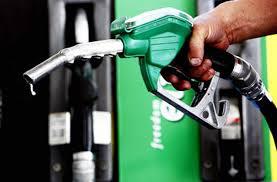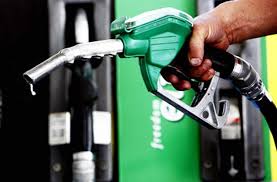Global Crude Price Decline Gives Political Will to Governments of Emerging Markets

The declining trend in global crude oil prices since October 2014, has encouraged the governments and policy makers of emerging economies to cut down subsidy for oil.
This cut down on petroleum subsidy has helped the emerging markets to save money and take corrective steps to manage fiscal deficits as well as send a positive signal to foreign direct investors.
Economists claim that policy makers debating reduction or abolition of petroleum product subsidy has the most opportune moment as the global crude prices have continued on a downward slope.
The issue of fuel subsidy removal has been a political hot potato for emerging market governments. While on one hand is the arduous task of managing the fiscal deficit to attract foreign investment into the economy, on the other hand the fear of losing popularity had halted removal or reduction of fuel subsidy plans.
Take for example, the demand by citizens in the UAE to lower prices of petroleum products at the pump while the fuel is practically dug out from their own backyard. On the other hand populism drove the successive governments in India to make available fuel, especially diesel, at a subsidized price largely targeting poorer quarters of the society without any mechanism to make the well to do pay extra for the same fuel.
India was among the first of the emerging nations to show enough courage to remove fuel subsidy. Riding on lowered global crude prices, the government of India removed subsidy and state control on prices of diesel in October 2014 leaving the markets to decide on the price of the fuel. At that time, the Brent futures support/resistance levels were around $83/$88 per barrel which was the cheapest since 2010.
Allying fears of a all out attack by the opposition in the country after the move, Indian consumers tolerated the price hike. This set off a regional trend in motion as some other countries followed suit to abolish or reduce subsidy on fuel. Six other emerging market governments have removed subsidies at least partially if not wholly after since October 2014.
In Indonesia, the country’s president Joko Widodo abolished the country’s fuel subsidy on 1st January, 2015. This was part of a wider reform agenda that is aimed at improving foreign direct investment and giving confidence to the money markets about the government’s pro-business credentials.
These are instances of oil importers slashing away subsidies.
However several oil producing countries too are following this path. This initiative among the oil producing countries has been spearheaded by the oil rich Emirate of Abu Dhabi - all seven of the United Arab Emirates have moved to remove transport fuel subsidies at a federal level.
UAE has the seventh largest proven oil reserves. The country would remove all subsidy from gasoline and diesel from 1 August 2015 and the prices would be linked to global prices.
A communiqué of the UAE government says: “a fuel price committee, which includes federal energy and finance representatives, and the CEOs of Abu Dhabi National Oil Company Distribution Unit and Emirates National Oil Company , will set prices monthly, based on a review of average global prices and operating costs”.
This move has made the rating agencies happy.
“Lower global oil prices since 2014 have cut fuel subsidy costs, but have also reduced government revenues among Gulf oil exporters. We think that governments in the region understand the benefits of subsidy reform, including both fiscal cost savings, and more efficient resource allocation and energy consumption,” said Jan Friederich, Senior Director (sovereign ratings) at Fitch ratings.
(Source: www.forbes.com)
This cut down on petroleum subsidy has helped the emerging markets to save money and take corrective steps to manage fiscal deficits as well as send a positive signal to foreign direct investors.
Economists claim that policy makers debating reduction or abolition of petroleum product subsidy has the most opportune moment as the global crude prices have continued on a downward slope.
The issue of fuel subsidy removal has been a political hot potato for emerging market governments. While on one hand is the arduous task of managing the fiscal deficit to attract foreign investment into the economy, on the other hand the fear of losing popularity had halted removal or reduction of fuel subsidy plans.
Take for example, the demand by citizens in the UAE to lower prices of petroleum products at the pump while the fuel is practically dug out from their own backyard. On the other hand populism drove the successive governments in India to make available fuel, especially diesel, at a subsidized price largely targeting poorer quarters of the society without any mechanism to make the well to do pay extra for the same fuel.
India was among the first of the emerging nations to show enough courage to remove fuel subsidy. Riding on lowered global crude prices, the government of India removed subsidy and state control on prices of diesel in October 2014 leaving the markets to decide on the price of the fuel. At that time, the Brent futures support/resistance levels were around $83/$88 per barrel which was the cheapest since 2010.
Allying fears of a all out attack by the opposition in the country after the move, Indian consumers tolerated the price hike. This set off a regional trend in motion as some other countries followed suit to abolish or reduce subsidy on fuel. Six other emerging market governments have removed subsidies at least partially if not wholly after since October 2014.
In Indonesia, the country’s president Joko Widodo abolished the country’s fuel subsidy on 1st January, 2015. This was part of a wider reform agenda that is aimed at improving foreign direct investment and giving confidence to the money markets about the government’s pro-business credentials.
These are instances of oil importers slashing away subsidies.
However several oil producing countries too are following this path. This initiative among the oil producing countries has been spearheaded by the oil rich Emirate of Abu Dhabi - all seven of the United Arab Emirates have moved to remove transport fuel subsidies at a federal level.
UAE has the seventh largest proven oil reserves. The country would remove all subsidy from gasoline and diesel from 1 August 2015 and the prices would be linked to global prices.
A communiqué of the UAE government says: “a fuel price committee, which includes federal energy and finance representatives, and the CEOs of Abu Dhabi National Oil Company Distribution Unit and Emirates National Oil Company , will set prices monthly, based on a review of average global prices and operating costs”.
This move has made the rating agencies happy.
“Lower global oil prices since 2014 have cut fuel subsidy costs, but have also reduced government revenues among Gulf oil exporters. We think that governments in the region understand the benefits of subsidy reform, including both fiscal cost savings, and more efficient resource allocation and energy consumption,” said Jan Friederich, Senior Director (sovereign ratings) at Fitch ratings.
(Source: www.forbes.com)





